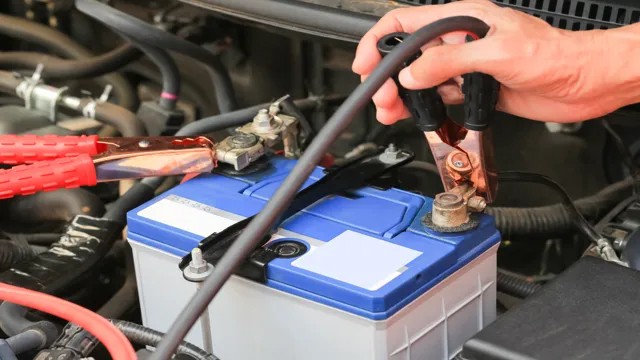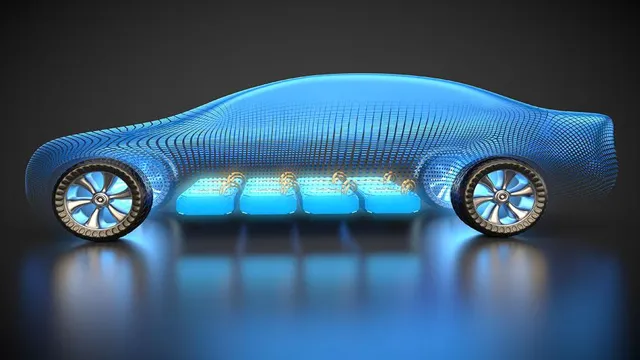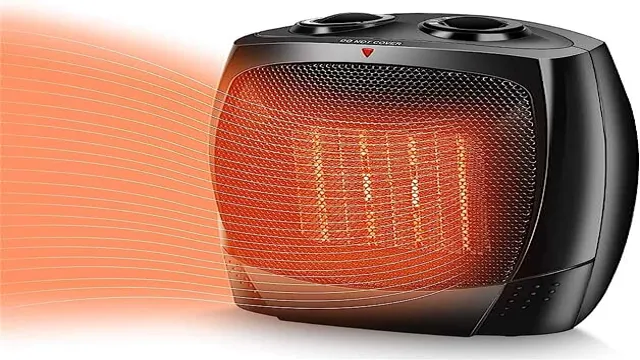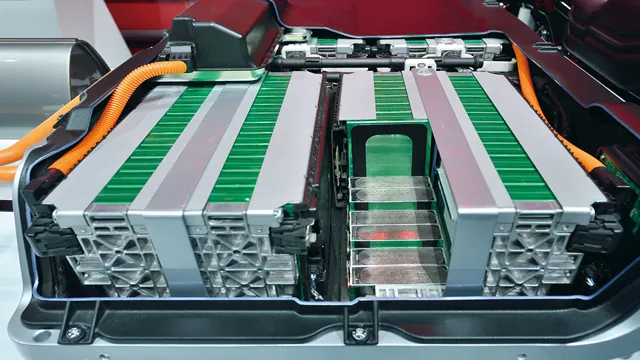Power up your ride with the best batteries for electric car conversion
Electrifying your vehicle could be one of the best decisions you make. Not only do you save on fuel expenses, but you also reduce your carbon footprint, thus contributing to a cleaner environment. Converting your car to an electric-powered vehicle is a great way to make this move.
However, one of the most crucial decisions you need to make is what battery to use. This is where the rubber meets the road, quite literally. Your battery choice will determine the car’s driving range, acceleration capabilities, and overall performance.
So, how do you go about making this decision? In this post, we’ll explore battery options to help you make an informed decision for a smooth ride.
Popular Batteries for Electric Car Conversions
Are you considering an electric car conversion and wondering what batteries to use? There are several popular options available, each with its pros and cons. One popular choice is lead-acid batteries, which are common and relatively inexpensive. However, they are heavy and have a limited energy density, meaning you’ll need more of them to achieve a reasonable range.
Lithium-ion batteries are another popular choice, thanks to their higher energy density and lighter weight. They’re also more expensive, but their longer lifespan can make up for the initial cost. Other options include nickel-metal hydride batteries, which are also lightweight but still have a lower energy density than lithium-ion, and solid-state batteries, which are a newer and more expensive technology with the potential for even higher energy density.
Ultimately, the best choice for your electric car conversion will depend on your budget, range needs, and personal preferences.
Lithium-ion Batteries
Lithium-ion batteries are arguably the most popular type of battery used in electric car conversions today. These batteries have a high energy density, which means they can store more energy per unit of weight than other battery types. They are also known for their longevity, as they can last for several years if they are properly maintained.
Lithium-ion batteries are widely used in the automotive industry for electric and hybrid vehicles because of their stable performance and low maintenance requirements. In addition to electric cars, these batteries are also used in portable electronic devices such as laptops and smartphones. With the increasing demand for eco-friendly transportation, more and more car owners are switching to lithium-ion batteries for their conversions, making them a popular choice for automotive enthusiasts.
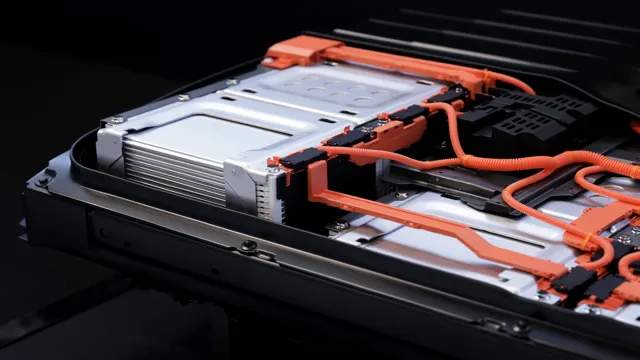
Lead-Acid Batteries
Lead-Acid Batteries If you are thinking about converting your gasoline car into an electric car, then you must be wondering about the best battery for your conversion. Undoubtedly, Lithium-ion batteries are the most popular choice due to their high energy density and long lifespan. However, if you are looking for an affordable and reliable option, lead-acid batteries could be the way to go.
Lead-acid batteries have been used for over a century and have a proven track record of reliability. They are also widely available and cost-effective. They are especially suitable for those who are on a tight budget or want to experiment with electric car conversion.
However, they do have some downsides, such as the need for regular maintenance, low energy density, and heavy weight. So, if you intend to use your electric car for short commutes or city driving, lead-acid batteries can be a viable option. Overall, whether you choose lithium-ion batteries or lead-acid batteries, it all comes down to your budget, driving needs, and personal preferences.
Factors to Consider when Choosing Batteries
When it comes to converting a gasoline-powered car to electric, choosing the right batteries is crucial. There are a few factors you need to consider before making a decision. Firstly, you need to think about the size and weight of the batteries.
You want to make sure they fit in the car and don’t add too much extra weight as this can affect the performance and range. Secondly, you need to consider the battery chemistry. Lithium-ion batteries are a popular choice due to their high energy density, but they can be expensive.
lead-acid batteries are another option, and they are more affordable, but they have a lower energy density. The third factor to consider is the capacity of the battery. This determines how much energy it can store and, therefore, how far you can drive on a single charge.
Lastly, you need to think about the cost of the batteries and your budget. While it may be tempting to go for the cheapest option, bear in mind that this may not give you the best performance or reliability in the long run. Ultimately, it’s important to do your research and consult with experts to find the best batteries for your electric car conversion.
Range Requirements
When it comes to selecting batteries for your device, it’s important to consider the range requirements. Range represents the distance that a device can travel or operate on a single battery charge or set of batteries. There are several factors to keep in mind when choosing batteries based on range requirements, including battery chemistry, size, and capacity.
For example, lithium-ion batteries are a popular choice due to their high energy density, but they may not be the best option for devices that require extended periods of use. It’s also worth considering the size and weight of the battery, as a larger battery may provide more capacity but can also make the device heavier and harder to handle. Ultimately, the right choice of battery will depend on the specific needs and usage patterns of your device, so it’s important to do your research and consider the factors that are most important for your situation.
Cost
When it comes to choosing batteries, cost is definitely a major factor to consider. However, it’s important to keep in mind that cheaper batteries may end up being more expensive in the long run due to their inferior quality. While it may seem like a good idea to save a few bucks by buying a cheaper battery, you’ll likely end up having to replace it sooner than a better-quality battery.
This can add up over time, especially if you’re using batteries frequently or in high quantities. That being said, it’s also important to not overspend on batteries that have features you don’t need. Consider what you’ll be using the batteries for and choose ones that have the appropriate capacity and voltage for your needs.
Ultimately, finding a balance between cost and quality is key when choosing batteries.
Charging Time
When choosing a battery, charging time is an essential factor to consider. The charging time can vary depending on the type of battery and its capacity. For example, Lithium-ion batteries have a faster charging time compared to Nickel-cadmium batteries.
Furthermore, the charger you use can also affect the charging time of your battery. A high-quality charger can significantly reduce the charging time, and it can also prolong the life of your battery. It’s vital to choose the right charger for your battery type and capacity to ensure efficient charging.
Additionally, factors like temperature and charging cycles can also impact the lifespan of your battery. So, when selecting a battery, make sure to consider all these aspects to get the best and most efficient results. By doing so, you can enjoy longer battery life and more productivity.
Installation and Maintenance of Batteries
If you’re considering converting your car to electric, figuring out the right batteries for your vehicle is essential. It’s important to choose batteries that are reliable, efficient, and can provide enough power to get you where you’re going. When installing your batteries, it’s imperative to have a professional set up the wiring and connections to ensure everything works as it should.
Regular maintenance is also necessary to keep your batteries in top shape. This includes regularly checking the charge level, cleaning the terminals and connections, and replacing any damaged or worn out batteries. Remember, your battery is the heart of your electric car, so keeping it well-maintained is the key to getting the most out of your electric car conversion.
With the right batteries and proper care, you can enjoy all the benefits of driving an electric car, such as reduced emissions and lower fuel costs, while also doing your part to help the environment.
Proper Wiring and Connections
When it comes to installing and maintaining batteries, proper wiring and connections are crucial. This is because faulty wiring or connections can lead to a variety of problems, including battery failure and even electrical fires. When installing a new battery or replacing an old one, it’s important to carefully follow the manufacturer’s instructions to ensure that all wires and connections are properly secured and that there are no loose or exposed wires.
Regular maintenance is also important, as it can help identify and address any issues before they become serious. This may include checking the battery terminals for corrosion or buildup, and tightening any loose connections. By taking these steps to ensure proper wiring and connections, you can help protect your battery and ensure that it continues to function properly for years to come.
Regular Maintenance Tips
When it comes to installing and maintaining batteries, following a few simple tips can help extend their lifespan and ensure optimal performance. First and foremost, it’s essential to read the manufacturer’s instructions carefully and follow them closely to install the battery correctly. When connecting the cables, it’s crucial to ensure that they’re secure and free of corrosion, which can impact the battery’s ability to function properly.
It’s also important to keep the battery clean and dry, inspecting it regularly for any signs of damage or wear. If you notice anything amiss, such as leaking or swelling, it’s essential to address the issue right away to avoid any further damage. Additionally, storing the battery properly when not in use can help prevent it from losing its charge or becoming damaged, ensuring that it will be ready when you need it.
By following these simple tips and prioritizing regular maintenance, you can keep your batteries functioning at their best for years to come.
Final Thoughts on Electric Car Batteries
When it comes to batteries for electric car conversion, one of the most important factors to consider is weight. The lighter the battery, the more efficient your electric vehicle will be, as it will require less power to move. This is why lithium-ion batteries are the most popular choice for electric car conversions.
They offer high energy density, low weight, and a long lifespan. However, they can be quite expensive, so it’s important to do a cost-benefit analysis before making a decision. Another option is lead-acid batteries, which are cheaper but heavier.
Ultimately, the choice of battery will depend on your specific needs and budget. It’s also important to ensure that the battery you choose is compatible with your electric vehicle, as well as to take proper safety precautions when handling and installing it. With the right battery, an electric car conversion can be a rewarding and eco-friendly project.
Conclusion
In conclusion, batteries are the heart and soul of any electric car conversion. They provide the power to propel the vehicle and keep it moving smoothly down the road. While there are many different types of batteries to choose from, it’s important to select ones that are reliable, efficient, and long-lasting.
So, whether you’re converting an old gas-guzzler to electric or building a brand-new EV from scratch, getting the right batteries is crucial to ensuring your vehicle runs like a well-oiled machine. After all, without batteries, that sleek new ride of yours would be nothing more than a glorified paperweight. So, when it comes to electric car conversions, don’t skimp on your batteries – invest in quality and you’ll never regret it!”
FAQs
What are the best types of batteries for electric car conversion?
Lithium-ion batteries are currently considered the best option for electric car conversion due to their high energy density and longer lifespan compared to traditional lead-acid batteries.
Can I use any type of battery for electric car conversion?
No, not all batteries are suitable for electric car conversion. Lithium-ion, Nickel-Metal Hydride (NiMH), and Lead-Acid batteries are the most common types used for electric car conversion.
How long do the batteries for electric car conversion last?
The lifespan of the batteries for electric car conversion can vary depending on several factors such as the type of battery, usage, and maintenance. On average, lithium-ion batteries can last up to 10 years, while lead-acid batteries last for about 3-5 years.
How can I properly maintain the batteries for electric car conversion?
Proper battery maintenance includes regular testing, charging, and cleaning. It is also important to avoid extreme temperatures and overcharging the batteries. It is recommended to follow the manufacturer’s instructions for maintenance.
